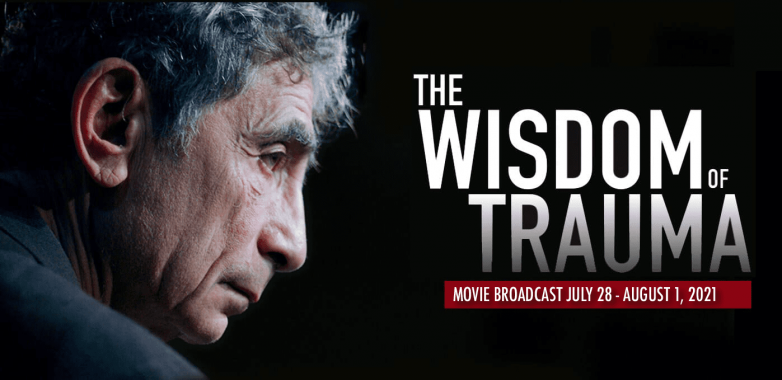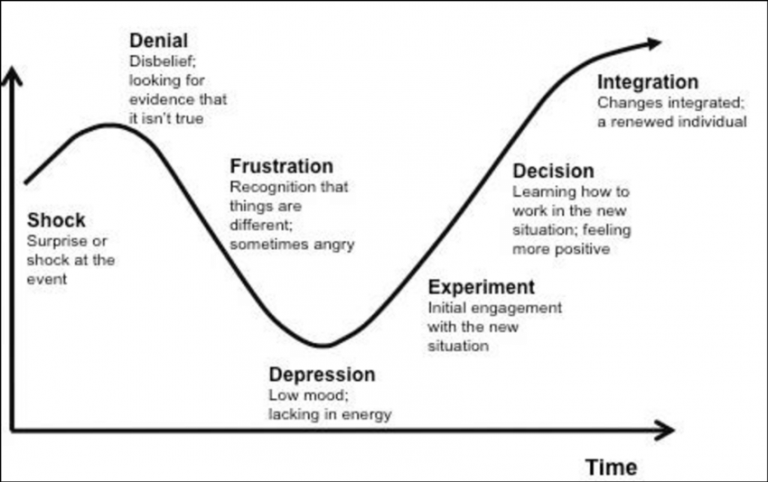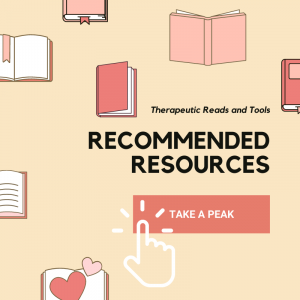
Counselling, Intimacy and Relationships
Becoming a Trauma informed Society
Brought to you by Science and Non-Duality in partnership with The Compassion Prison Project, Chrysalis Society and The Downtown Street Team; The Wisdom of Trauma documentary follows Dr. Gabor Mate as he shares his work on exploring the relationships between trauma, pain, addiction and disconnection.
Click here to Watch The Movie
“Trauma is not what happens to you,
it’s what happens inside you as a result of what happened to you”.
Dr. Gabor Mate
What’s significant about this move?
Whether you have experienced trauma or known others in your life who have been impacted by trauma, becoming a trauma informed society helps us as individuals to recognise that even when we don’t see trauma, it cannot be reasonable to deny others of their traumatic experience when there is a significant impact on their mental health, physiological wellbeing and impact on relationships.
There are still a ways to grow, learn and adapt with compassion to heal the self and allow space for others to heal in the safety of home, work or school because humans will be human where ever we go. Location for experiencing trauma is irrelevant, but the need for empathy and compassion is prevalent.
As well as providing first-hand interview encounters of exploring how Dr. Gabor Mate shares his knowledge in what helps to heal trauma, the project itself provides a series of interviews and talks with renowned mental health and somatic experiencing experts Dr.Peter Levine and Dr.Stephen Porges, relationships specialists Esther Perel and Diane Poole Heller PhD, activists and speaker such as Resmaa Menaken MSW, Alanis Morissette and international recording artists Sia. All sharing their insights on their learned process in healing trauma through creativity, compassion, recognition and reconnecting with the authentic self.
It is raw, it is real… it is human. It’s advised to take care of the self whilst watching this film and should you wish to join the discussion group that reflects on the impact of this film, there will be a ‘Wisdom of Trauma’ group discussion available to participate in here.
visit wisdomoftrauma.com for more information
Recent Articles
Amanda Salvara MBACP
Registered Counsellor, Psychotherapist and NLP Coach

Coaching, Counselling
How Living in the Moment
Can Help With Wellbeing
Honouring our emotions, thoughts and feelings with compassion in the moment, moves your focus to that moment only. When you’re living ‘in the moment’, the past and the future can’t touch you.
It can be a difficult task to put your feelings about the past or future aside. It’s like when someone says, “Don’t think of a pink elephant!” Did you think of one, just now?
Well, your grief is sometimes that pink elephant and it seems like there’s nowhere to turn. In this situation, you can look for help from present moment thinking.
Remaining in the present takes practice. While you’re learning how to live in the moment, remember that it gets easier as time goes on.
Using Mindfulness and Meditation
You can work on redirecting the attention from your thoughts, but one practice that’s all about staying in the present moment is mindful awareness and meditation. These simple exercise can also help you work with grief, stress or anxiety.
Here are some practice tips and options:
- For 1-week, create a meditation schedule – 30 minutes per day every day.
- Go to a place where you can relax and be alone and notify those around not to interrupt.
- Sit in a position with good posture or lie down on your bed with the doors closed.
- Take deep breaths in and out from the bottom of your lungs by holding your hand over your stomach to ‘notice’ the constant breath.
- You can use guided meditation apps that provide a “mantra”, visualisation or positive affirmation to help you focus.
- When thoughts arise, acknowledge them, and then let them go.
The most difficult thing you might encounter when learning to meditate is calming your busy mind. Focusing on your breathing helps clear away extraneous thoughts and worries.
When you’re grief stricken, it’s an especially difficult time to keep a clear mind. Thoughts of the past will more than likely keep coming up in your practice. This is normal. As you continue practicing, it will get easier to focus on the now.
An important thing to remember is to avoid judging yourself. Don’t punish yourself for thinking of the past when you’re trying not to think about it. Realise that your mind is taking a turn you didn’t intend, and then lightly nudge it back in the right direction. Be grateful that you were able to catch yourself in the midst of a negative thought, and then move on.
Keeping Up Your Practice
Once you’ve adopted a philosophy of present moment thinking, concentrate on keeping up with your practice. Rather than a mechanism you turn to only when you’re in a pinch, consistent present moment thinking can bring you an exhilarating new lifestyle!
When you learn to live in the moment, you’ll find peace and happiness in life. You’ll be more calm and collected and enjoy every moment for what it is. How amazing is this!
Moment By Moment
As your practice deepens, you’ll fully realize that life is just a series of moments. It’s not a definable measure of time, but you’ll feel many moments in every minute. Little by little, you’ll learn to recognize them.
You may find it difficult to remain in the present just because you must refer to the past and plan for the future in order to live. This is true, of course, but once the reflection is over, and the planning is put away, your goal is to remain in the moment as much as possible.
- Refer to the past when you must, but avoid reliving grief or daydreaming.
- Plan for the future, but don’t obsess over it.
- Simply look at what you’re experiencing right now and immerse yourself in it.
Living in the moment can help not only processing grief, but also help strengthen the ability to catch the thoughts and feelings before they spiral out of control. When your mind is completely focused on the present moment, you’ll be surprised at how much lighter life can be!
Tools and resources
Explore the various forms and tools of guided meditations and practices available to integrate into your everyday life and become more equipped to support yourself when times get tough. The Little book of Mindfulness has been a great tool to use when getting away from the desk for 10-minutes a day. Simply steps that make a big difference.
The free Insight Time App also provides a variation of guided mindfulness tools and meditations tracks, music and talks on the various practices available. Just search keywords of what you’re struggling with or curious about and the app with narrow down some suggestions for you.
Recent Articles
Amanda Salvara MBACP
Accredited Counsellor, Psychotherapist and NLP Coach
Contact
+4420 8106 0776
hello@amandasalvara.com

Considerations for Therapy, Counselling
Considerations for
Telephone Counselling
You direct your counselling by selecting the method of communication you feel most comfortable with. You choose the time, the place and the pace of your counselling to suit your needs with telephone counselling.
How it works
This is similar to webcam counselling as it happens through the Zoom system, or via a handset, but without the visual aspects. You can choose to remain anonymous and the conversation is encrypted if held on Zoom. Every effort is made to provide a safe and secure environment for your online therapy with encryption software to protect your confidentiality and secure.
An advantage of telephone counselling is that non-verbal communication can be carried in your tone of voice or the pace of speech which can be picked up by your counsellor.
A disadvantage of telephone counselling is that you need a private space where you will not be overheard. Telephone counselling offers certain benefits but there are also limitations that are worth bearing in mind when deciding which type of therapy will best suit your needs.
Benefits
- Flexibility to chose counselling therapy at a time that suits you
- Calls can take place from your own home, sitting in a parked car, or whilst on a 1-hour walk
- Secure telephone line that offers confidentiality and peace of mind
- No chance that you may be seen entering the counsellors practice or worries about travelling to and from the centre
- Some find it easier to express their thoughts and feelings when not sitting in front of someone (disinhibition effect)
- Access to counselling sessions may be more immediate
Things to consider
- Are you comfortable talking on the phone for 50-minutes?
- Would you prefer to see your counsellor face-to-face?
- Do you feel you can express your feelings effectively using words?
- Do you feel your situation is too complex to discuss over the phone?
- Is there somewhere you can go to for a private conversation without interruption?
- There are no non-verbal cues or body language for you or the counsellor to read this can lead to misunderstanding
Booking in an initial consultation over the phone provides an opportunity to see how it feels talking with a potential therapist and assessing your comfort levels. Things may change, and that’s OK. If at any point you would want to try face-to-face therapy or move to online video, you can always check in with the therapist if they would be flexible to do so or can refer you to a counselling service that matches your needs.
Recent Articles
Amanda Salvara MBACP
Accredited Counsellor, Psychotherapist and NLP Coach
Contact
+4420 8106 0776
hello@amandasalvara.com

Counselling, Intimacy and Relationships, Life Transitions
How to Provide Comfort to
Those Going Through Tough Times
When life hands you a tough situation, you may need to lean on other people for comfort. But what if you’re the person that needs to provide the shoulder? It can be a difficult job since you need to be the one that stays strong for the other person.
How you provide comfort will vary depending on who you’re comforting and what they’ve gone through. However, there are universal tips to keep in mind when you’re consoling someone.
Here are some strategies that can help you provide much-needed comfort to others:
- Uplift them. When someone approaches you for comfort, chances are that they’re not asking you for your advice. More likely, they just need someone to be there for their emotional needs. Avoid trying to solve their problems unless you’re asked for advice. In that case, you’re free to provide any advice that you have.
- Listen well. It’s always a good idea to develop your listening skills. A part of being a good listener is truly striving to understand what the other person is saying or going through. Remember that you can provide a certain degree of comfort just by lending an open ear to the person suffering.
- Offer unconditional help. Sometimes it’s comforting just to know that the other person is there. Tell the person that’s suffering that they can discuss their problems with you any time they need a lift to help them get through.
- Give a hug. It’ll certainly vary depending on the relationship that you have with the person you’re comforting, but you can provide physical comfort with a hug. Hugs simply make people feel better! The human touch can melt the soul and warm them with comfort.
- Be understanding. You might not know what it’s like to go through the tough time that you’re helping with, but that doesn’t mean that you can’t strive to understand. Do your best to try and understand where this person is coming from.
Understanding Grief
If the person you’re helping is dealing with loss, you’ll also be helping them with their grief. Grief is a natural emotion to go through when people are facing a traumatic loss, natural disaster or sudden and unexpected change. If you gain a better understanding of grief, you may know what to expect should it ever happen for yourself or someone else and feel able to respond in an empathetic manner.

The Stages of Grief
As outlined in the Kübler–Ross Grief model above, grief is expressed in different stages and different people spend varying amounts of time on each stage. Sometimes the stages aren’t even expressed in the same order.
Grief usually starts with the initial shock of the loss and often times denial accompanies this distress. Then pain and anger sets in, which may last for a long time. Sometimes depression also sets in before the person journeys into acceptance.
While you don’t want to push a person through the stages too fast, you do want to do whatever you can to help them along to acceptance. When they’re angry, be an open ear and try to reassure them. Help them see their problem or loss from a different perspective.
Depression can be difficult to help with since the person tends to lose interest in the world around them. You and your shoulder to cry on can make a difference. Show them that the world hasn’t given up on them, so they shouldn’t give up either. With your support, and the help of a professional, the process will find a way that works best for the person and their understanding of what’s happening for them.
When someone you know is going through a rough time, these tips are a basic guide in ways to console your loved one. The comfort you bring them may be the one thing that helps them make it through to better days.
Recent Articles
Amanda Salvara MBACP
Accredited Counsellor, Psychotherapist and NLP Coach
Contact
+4420 8106 0776
hello@amandasalvara.com






